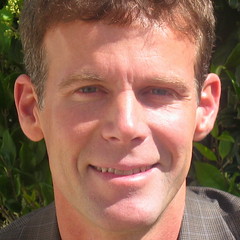
John M. Smart
Co-Founder, Brain Preservation Foundation
The Brain Preservation Prize:
Why Inexpensively Preserving Our Brains After Death is a Good Thing for Ourselves and Society, And What You Can Do to Help
Roughly 150,000 unique and highly experienced human beings die every day, 55 million every year—a staggering loss of diversity and complexity for our planet. While modern medical science has barely begun to make progress in preventing biological death, we have learned in recent decades how to easily and cheaply preserve the brain structures that encode our unique memories and personalities using plastination, or chemical fixation and embedding in plastic for long-term storage. Very recently, we have also learned how to verify that these unique structures have been successfully preserved. Due to its low cost (likely much less than a casket burial) and validation ability, brain (or body) plastination may become an option for anyone who would choose to exercise it in coming years.
There are a wide range of reasons and motivations for preserving our brains, the essence of our unique, individual experiences and identities. Some may do it for science (an anatomic gift to the ‘human projectome’) or in pursuit of a more scientific, democratic, free, or secular society today. Some may desire not to be revived in the future as a conscious entity, but rather to leave their memories and experiences for their loved ones, as an extension of the digital memorials we see today. Some will desire to be consciously revived and have their patterns “uploaded” into a future robotic or virtual body or “reintegrated” into a future biological body. Some will leave such issues to future generations to decide.
Curiously, given the accelerating technological change we have seen in the last century, it has become reasonable to expect the emergence of general artificial intelligence (GAI) within this century. Were this to occur, progress in nanotechnology, machine automation, medical science, and other fields relevant to reanimation might then shortly follow. As a result, our individual memories, or our conscious selves if desired, could then be brought back not in some far-future environment, but in a world where many of our friends and loved ones are still alive. The relevance and value of preserving our unique memories or selves should be beyond doubt in that scenario. To those seeking major ways to improve the human condition today, making the brain preservation option available and affordable to all, so that we all have free choice to exercise it or not, is a future very much worth fighting for.
The nonprofit Brain Preservation Foundation has been created to administer the Brain Preservation Prize, a series of awards for breakthroughs in brain preservation technology and services. We hope you will join us in our work to promote, better fund and execute this prize, support the international teams who will labor to win it, and help us to make brain preservation an option for all in coming years.
John M. Smart is an evolutionary developmental systems theorist who studies science and technological culture with an emphasis on accelerating change, computational autonomy, and foresight. He is co-founder of the Brain Preservation Foundation (BPF, BrainPreservation.org), stewards of the Brain Preservation Prize, and director of the Acceleration Studies Foundation (ASF, Accelerating.org) a nonprofit research organization that seeks to help individuals better understand and manage accelerating technological change and improve personal and collective foresight. He is associate professor and program champion for the Emerging Technologies MS and Technology Studies BS at the University of Advancing Technology (UAT.edu), and co-founder of the Evo Devo Universe research community (Evodevouniverse.com).
For further information on John Smart's presentation, visit accelerationwatch.com
